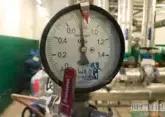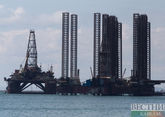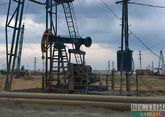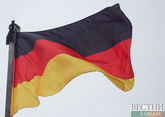Germany plans to bring back coal- and oil-fired power plants should Russia cut off natural gas shipments to Europe’s largest economy. Economy Minister Robert Habeck will on Tuesday present an emergency decree enabling the government to bring back the facilities in case of gas shortages, according to the proposed legislation seen by Bloomberg.
Times writes that Germany is resorting to desperate measures to keep the lights on and its massive industrial parks running, turning to dirty fuels even if that means a surge in carbon emissions. The nation has almost six gigawatts of facilities that are currently part of a national reserve, many of which were supposed to be closed down as part of the coal phase-out plan.
“This request for additional coal-fired power generation only occurs when there is a gas shortage, or if there is a threat of a gas shortage and the gas consumption in power generation has to be reduced,” according to the proposed law.
The decision comes even as Habeck’s Greens—part of Chancellor Olaf Scholz’s so-called traffic light coalition—want to bring forward to 2030. The coal-phase out was initially planned for eight years later.
“We must complete the phase-out of coal in Germany by 2030. This is more important than ever in the current crisis,” according to the decree. “On the way there, we have to strengthen our precautions and keep coal-fired power plants in the reserves for longer in the short term.”
German utilities had already said they could make plants available if needed. Uniper said it could dispatch as many as 3 gigawatts of coal power generation to strengthen security of supply, while RWE AG said it was reviewing which power plants could be turned back on. Germany currently has 4.3 gigawatts of coal plants and 1.6 gigawatts of oil facilities on reserve.
Still, safeguarding energy supplies in Europe’s top buyer of Russian gas won’t be easy. The continent also relies on Russia for the vast majority of the thermal coal it imports to run the polluting power plants, many of which Germany had already committed to closing this year and the next.
Europe buys two kinds of coal from Russia—thermal, burned by power plants, and metallurgical, used in steel making. The Russian share of the EU’s imports of thermal coal is almost 70%, with Germany and Poland particularly reliant. With so much of Europe’s fuel coming from Russia, European utilities will have to pay more to get coal from places like South Africa and Australia.
Coal plants will be reactivated if Russian gas is cut off, a government official said. That would trigger the second of a three-stage Germany’s gas emergency plan. The emergency decree would allow the government to activate the coal facilities without approval from parliament for up to six months.
According to an internal list, 26 plants could be used in total. Fifteen of these are coal plants, 6 oil and 5 lignite, which will be put on a security alert. In five cases, German regulator Bundesetzagentur still has to determine the systemic relevance. Once this is granted, the plants will also become part of the reserve until March 31, 2024.










